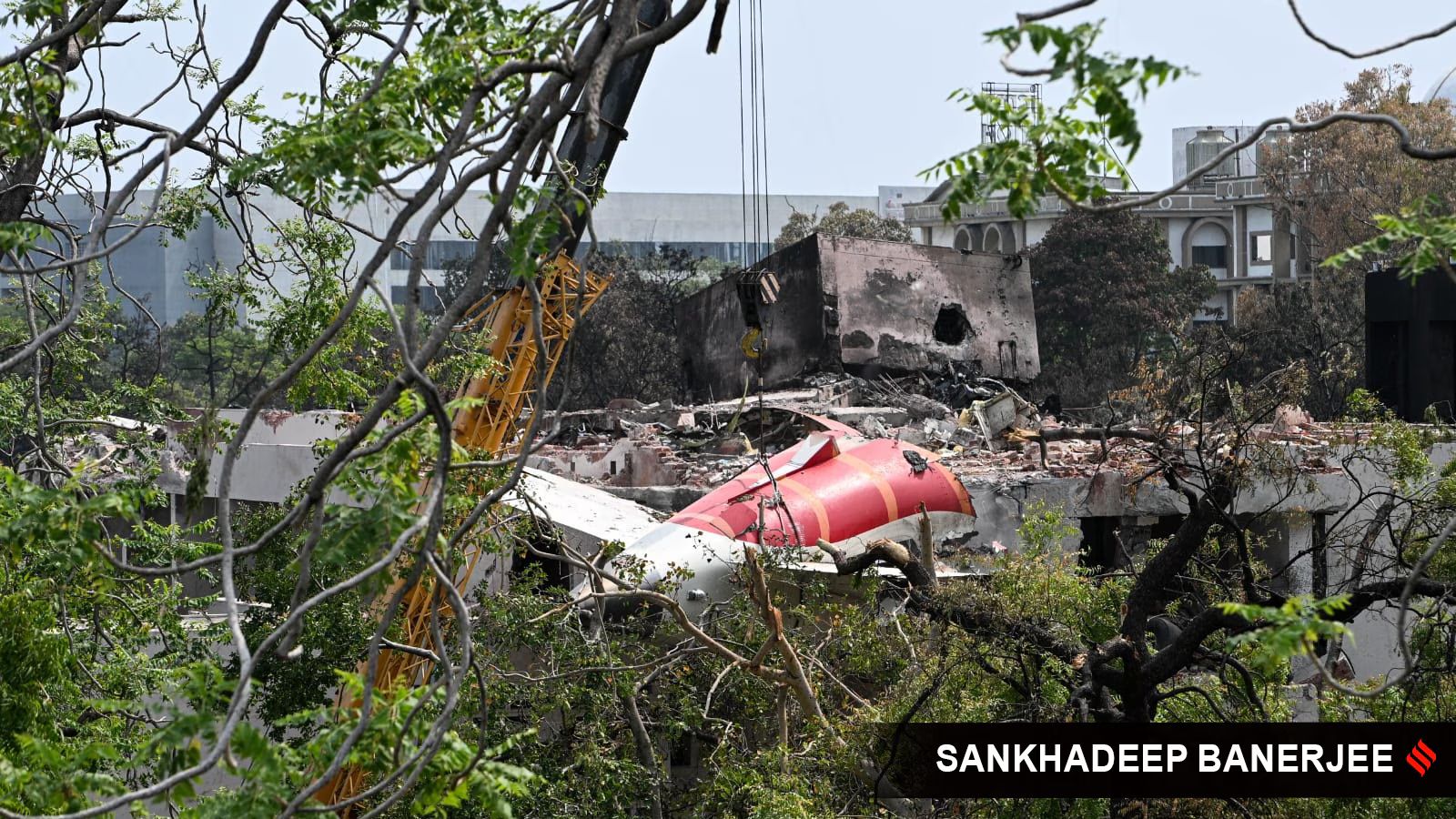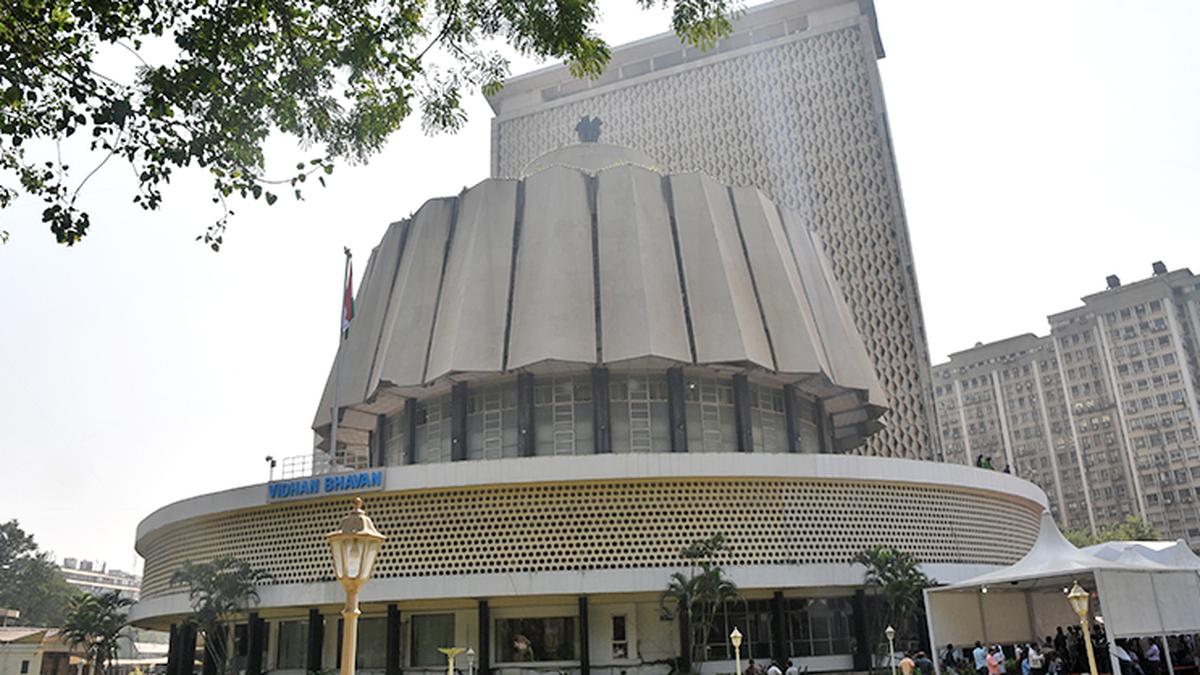PROTECT YOUR DNA WITH QUANTUM TECHNOLOGY
Orgo-Life the new way to the future Advertising by AdpathwayIt’s 8.15 am on a Thursday last week. At the Labour Chowk in Madanpur Khadar JJ Colony, Anguri and Mamta, both in their late 20s, arrive from their homes located a few metres away. Before leaving, they made sure to use the washroom — unsure of when they’ll get the chance again.
Residents of Uttar Pradesh, they migrated to the Capital to work at construction sites. They join a crowd of men and women like them, waiting for work.
But Anguri is in two minds. Her thighs are bruised as she had to squat and work on the second day of her period, with no place to relieve herself. “We go to the washroom before work; if we say it’s urgent… we fear the contractor will remove us,” she says.
“We use a cloth during our menstrual cycle… there’s no safe space to change it. We are forced to find a quiet spot and flip the cloth… We end up using the same cloth from 8 am till 6 pm,” says Mamta, his voice low as she stands in a crowd of men smoking beedis.
Lack of basic facilities such as washrooms for female workers on construction sites, among other issues, is a common problem across Delhi-NCR.
This is despite the Building and Other Construction Workers (Regulation of Employment and Conditions of Service) Act, 1996, mandating comprehensive welfare measures for women construction workers. These include the availability of clean, accessible, and separate toilets to ensure sanitation; establishment of canteens to provide food during working hours; and the provision of crèches for childcare, etc. Statutory provisions for employers under the Act also mandate the availability of clean toilets.
Back at the Labour Chowk, there’s still no contractor in sight. Anguri takes off her blue slippers, their soles almost torn, and sits on them while adjusting her saree.
Story continues below this ad
 Toilets at the Nauroji Nagar centre. (Express Photo)
Toilets at the Nauroji Nagar centre. (Express Photo)
She recalls how once, the owner of a five-storey house refused to allow her to use the washroom already built in the houses. “He removed me from the job.”
Pointing to her wrist, she says, “How are we different? If you cut my wrist, you’ll find the same colour of blood.”
An hour has passed. A few more women reach the chowk after their household chores.
Sitting under a tree to escape the sun are Meena Devi (26), Sangeeta Raikwar (55), and Gayatri Anuragi (40). They are from Mahoba in UP.
Story continues below this ad
Devi squats on her haunches by the side of the road, scanning the road with a long face. Raikwar holds her yellow bag tightly in her lap, waiting for a work call. She no longer gets her periods, but she remains a lifeline for menstruating women. “I stopped menstruating some time ago. But when a woman needs to relieve herself, I go with a group of other women to the nearby jungle. We make her sit, then hold out our pallus (the loose end of our sarees) above her like an umbrella,” she says.
But the three friends rarely work at the same site. “Yesterday, I could use the washroom only after I reached home from work at 7 pm, since I was the only woman among nine male workers at the site,” Meena Devi says.
Twenty kilometres away is the World Trade Centre in Nauroji Nagar. Once home to government flats, it now sports 12 ten-storey buildings for offices. These ultra-modern corporate offices are serviced by a three-level basement for parking and services, and a retail and sky-top restaurant, the NBCC had said in a statement earlier.
Outside, working under the shade of the corporate towers, are Kallad, in her 60s, and Rupa Devi (25).
Story continues below this ad
Kallad squints as she scrapes dried chunks of cement stuck to the paved yellow pathway. She has been working at the site for over a year now — hauling bricks, mixing mortar and carrying loads.
“Jawaharlal stadium ki buniyaad humare saamne dali (The foundation of the Jawaharlal Nehru stadium was laid in front of me). I know many places in Delhi,” she says proudly.
But like several other women workers, the one thing she struggles to locate each day is a clean toilet — despite four washrooms on site.
A foul smell hangs in the air around these portable toilets. A guard sitting close by hurriedly locks the door left open by Rupa, who went to check if it was clean.
Story continues below this ad
While they look functional from the outside, the inside is a different picture — excreta has been left on the seats for weeks, with flies constantly swarming the area. “We prefer paying Rs 5 to use the public washroom located at a distance outside the complex,” says Rupa.
There are toilets inside the complex, but not meant for people like them, the women say. “The guard keeps the door of the washrooms located inside the building locked. Kehta hai sir/madam log ke liye hai (he says that it is for the bigwigs),” she says.
“They don’t let us in,” echoes Rupa as she takes a sip from a half-melted ice-cold water bottle kept in the shade. “We had even asked the staff to at least clean the portable washrooms here,” she says.
When contacted, the NBCC wrote in an email response: “The main construction work at the site has been completed. Currently, interior fit-out works are being undertaken by respective buyers. However, during the active construction phase, the following measures were implemented: Temporary labour camps with adequate ventilation; mobile toilets and bathing facilities were provided; daily spraying of bleaching powder in toilets; drains and waste collection points were ensured; regular cleaning and disinfection of sanitation facilities was carried out….”
Story continues below this ad
When asked who had set up the mobile washrooms at the site, an NBCC official, who did not wish to be named, says, “There is no clarity on who set it up; it could be the owners who are carrying out interior fitting work, since NBCC work is complete.”
Doctors point to the health effects this could have on women.
“Holding urine for long hours is not healthy since it can cause many infections. Women might drink less water to avoid using the washroom, which can cause dehydration,” says Dr Uma Vaidyanathan, Director-Obstetrics and Gynecology, Fortis Hospital, Shalimar Bagh.
“Unhygienic menstruation practices such as using the same cloth for long periods, not maintaining cleanliness, can cause severe infections,” she adds.
Story continues below this ad
Sunil Kumar Aledia- Executive Director, Centre for Holistic Development, said: “Women need to be aware of their rights… The government will come out with schemes, but it is the people sitting at the lower level of the bureaucracy who need to implement them.”
He added that women should be given paid leave during their periods.
The lack of basic amenities is not gendered.
A few men who work at a construction site in RK Ashram say workers are left to fend for themselves, even for water.
“Mazdooron ka bahut shoshan ho raha hai iss desh ke andar (the labourers are being exploited in this country),” says a worker who did not wish to be named.
Story continues below this ad
There is an absence of medical healthcare at the site, they claim. “Nobody looks after us, we don’t get the three-hour break that was promised,” the worker says.
He is referring to the announcement made by the BJP-led Delhi government on International Labour Day this year, which said that a mandatory break from 12 pm to 3 pm will be provided during the summer.
“We just get a lunch break from 1-2 pm,” another worker says as he passes by.


 3 weeks ago
2
3 weeks ago
2









 English (US) ·
English (US) ·  French (CA) ·
French (CA) ·  French (FR) ·
French (FR) ·